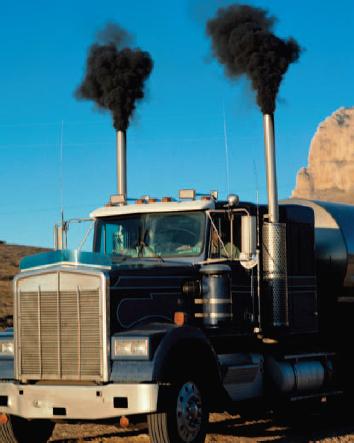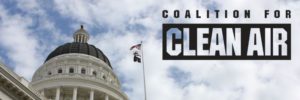
Sometimes bills that make the most sense can be the hardest to pass in California’s Legislature. And so it goes with Senate Bill 210 by Senator Connie Leyva (D-Chino).
This bill isn’t so difficult to understand. It simply requires big-rig diesel trucks to get smog certified.
You didn’t know that those heavy-duty trucks rolling to and from freight hubs like railyards or ports and warehouses don’t have to get smog-certified?
That doesn’t seem right, does it?
Approximately 10 million older-model vehicles (eight model years or older) are smog tested every year. If the car doesn’t pass, repairs must be made to reduce its emissions to legal levels before it can be registered with the Department of Motor Vehicles.
The California Air Resources Board (CARB) reports that the Smog-Check program removes about 400 tons of smog-forming pollutants from our air every day.
But California still has a serious air-pollution problem and big-rig diesels are a big reason why. Eight of the nation’s most polluted cities are in California. I’m typing this post in one of them – Sacramento. Chances are good you are reading this post in one of them, too.
Nearly 12 million Californians live in communities that exceed the federal standards for ozone and fine particulate matter less than 2.5 microns in size (PM2.5). This translates into hospital visits, asthma attacks and other heart and lung ailments, lost school and work days, cancer, premature births and premature deaths. Kids and the elderly are particularly vulnerable to the health impacts of PM2.5.
As of 2016, heavy-duty trucks rumbling down our roads and highways belched out nearly 60 percent of ozone- and PM2.5-forming oxides of nitrogen emissions from all on-road mobile sources.
CARB recently passed improvements to its current visual and self-reporting emission-testing programs but compliance and enforcement is spotty at best.
It will take a comprehensive Smog-Check like program for heavy-duty diesel as envisioned in SB 210 to bring greater relief to people living in communities suffering from ozone and PM pollution – especially low-income and disadvantaged communities.
Because the Smog-Check program is so well established in California with measurable benefits to our air quality you’d think SB 210 would breeze through its hearing before the Assembly Transportation Committee on June 25.
Its fate, however, is far from certain and that raises a fundamental question: In the Capitol populated by lobbyists and special interests, can any bill be considered a “no brainer” no matter how much sense it makes?
The powerful California Trucking Association has raised “concerns” about SB 210 – particularly about the fees imposed on its members that the program would require (we all pay a fee to get our cars smog checked). Agriculture interests who want many of their trucks exempt from any emission-control regulations are also raising red flags.
The committee chair, Assemblymember Jim Frazier (D-Discovery Bay), seems receptive to these concerns.

If you care about clean air and the health of all Californians please contact Assemblymember Frazier and express your support for SB 210 at (916) 319-2011 or call the committee at (916) 319-3551. Letters of support should be sent to Cynthia Alvarez, the committee consultant analyzing the bill, at cynthia.alvarez@asm.ca.gov.
If your representative in the Assembly sits on the Transportation Committee please contact him or her and urge their support. Committee member contact information can be found here: http://atrn.assembly.ca.gov/content/members.
Lastly, reach out to Assembly Speaker Anthony Rendon at (916) 319-2063 and let him know how important the passage of SB 210 is to you.
[share title=”Share This Post”]








